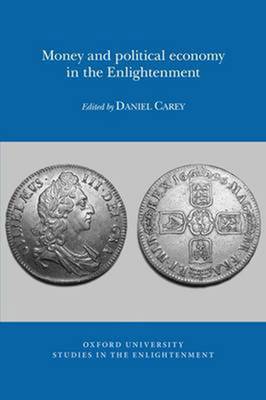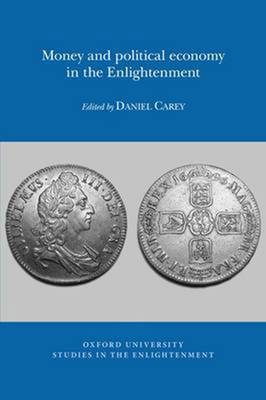
Door de nationale actiedag kan je online bestelling iets langer onderweg zijn dan normaal. Dringend iets nodig? Reserveer en haal na 1u af in een winkel met voorraad.
- Afhalen na 1 uur in een winkel met voorraad
- Gratis thuislevering in België vanaf € 30
- Ruim aanbod met 7 miljoen producten
Door de nationale actiedag kan je online bestelling iets langer onderweg zijn dan normaal. Dringend iets nodig? Reserveer en haal na 1u af in een winkel met voorraad.
- Afhalen na 1 uur in een winkel met voorraad
- Gratis thuislevering in België vanaf € 30
- Ruim aanbod met 7 miljoen producten
Omschrijving
The development of political economy as a philosophical preoccupation constitutes a defining feature of the Enlightenment, but no consensual agreement on this issue was formed in the period. In this book contributors reassess the conflicting views on money, trade, banking, and the role of the State in the work of leading figures such as Locke, Davenant, Toland, Berkeley and Smith, and Smith's critics in revolutionary France. Key events, from the Recoinage crisis in the 1690s to the South Sea Bubble in the 1720s and the consequences of the French Revolution, sharpened the need for a more dynamic conception of economic forces in the midst of the Financial Revolution. Political economy emerged as a disruptive force, challenging philosophers to debate and define unstable phenomena in a new climate of expanding credit, innovation in money form, political change and international competition. In Money and political economy in the Enlightenment contributors investigate received critical assumptions about what was progressive and what was backward-looking, and reconsider traditional attempts to periodise the Enlightenment. Major questions explored include: the impact of economic and political crises on philosophy; transitions from mercantilist to 'classical' analyses of the market; the challenge of reviving ancient republicanism on the foundations of a modern commercial system, with its inherent social inequalities.
Specificaties
Betrokkenen
- Auteur(s):
- Uitgeverij:
Inhoud
- Aantal bladzijden:
- 272
- Taal:
- Engels
- Reeks:
- Reeksnummer:
- nr. 2014
Eigenschappen
- Productcode (EAN):
- 9780729411387
- Verschijningsdatum:
- 12/05/2014
- Uitvoering:
- Paperback
- Formaat:
- Trade paperback (VS)
- Afmetingen:
- 156 mm x 233 mm
- Gewicht:
- 399 g

Alleen bij Standaard Boekhandel
+ 170 punten op je klantenkaart van Standaard Boekhandel
Beoordelingen
We publiceren alleen reviews die voldoen aan de voorwaarden voor reviews. Bekijk onze voorwaarden voor reviews.









